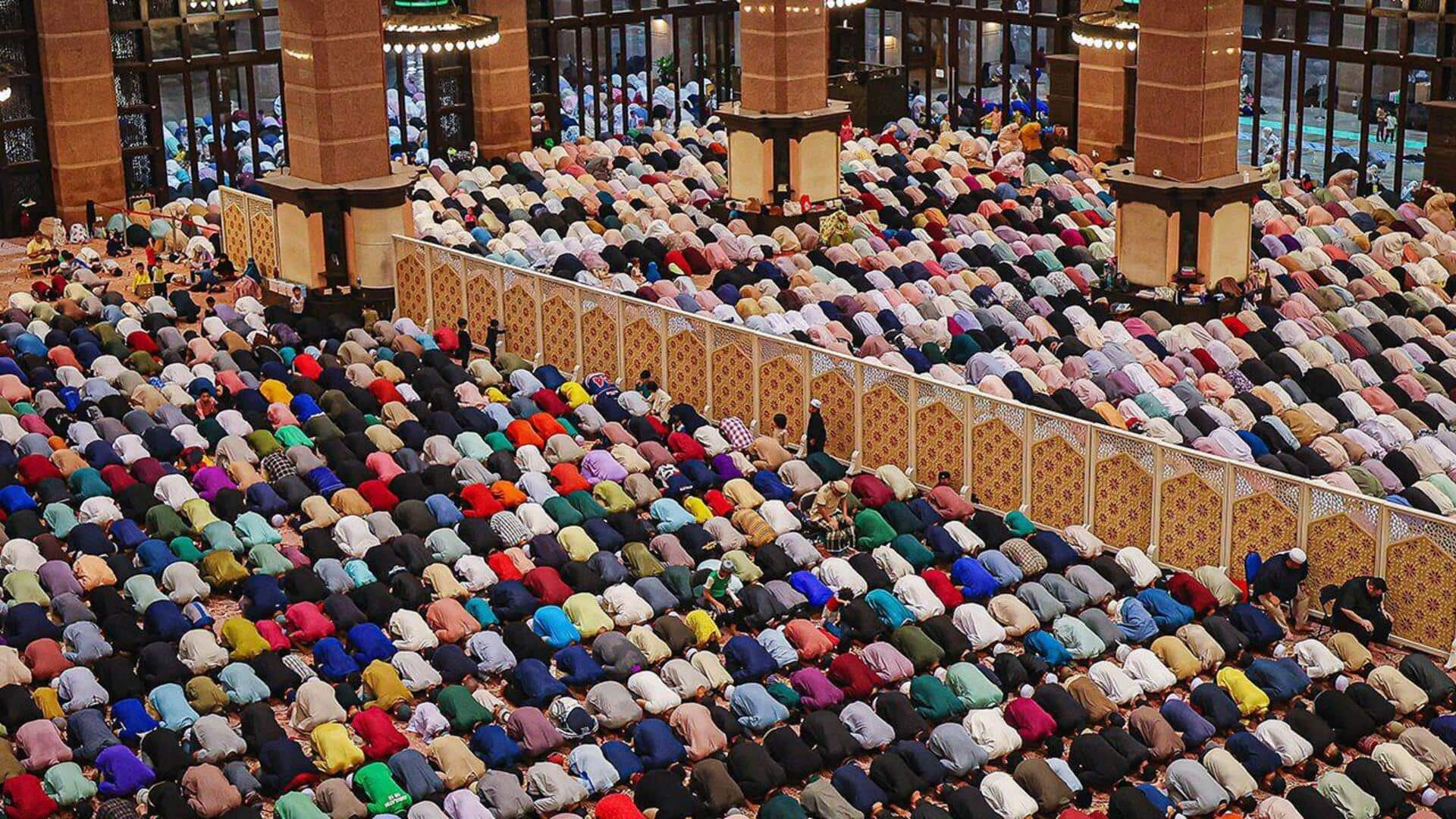
Malaysian state enforces law penalizing men for skipping Friday prayers
What's the story
The Terengganu state in Malaysia has announced plans to fully implement a sharia law that could imprison Muslim men for up to two years for skipping Friday prayers without valid reasons. The law, which is now being strictly enforced, was announced by the Pan-Malaysian Islamic Party (PAS)-led state government on Monday. First-time offenders under this law could face imprisonment, fines of up to 3,000 ringgit (approximately $710), or both.
Religious enforcement
Law comes ahead of Malaysia's next general election
The announcement is a significant tightening of religious enforcement in Terengganu, which is home to a 1.2 million-strong population and is Malaysia's only state without opposition representation in its legislative assembly. The PAS party won all 32 seats in the 2022 elections, giving it a stronghold to push for stricter punishments for religious offenses. This move comes as Malaysia gears up for its next general election due within two years.
Religious conservatism
Law reflects Malaysia's shift toward religious conservatism
The new law is seen as a sign of Malaysia's shift toward religious conservatism. Under the law, only those who missed three consecutive Friday prayers were previously penalized. Muhammad Khalil Abdul Hadi, a member of Terengganu's executive council in charge of information and preaching, emphasized the importance of Friday prayers as "not only a religious symbol but also an expression of obedience among Muslims."
Constitutional provisions
Malaysia's constitution and its pluralistic society
Malaysia's constitution recognizes Islam as the state religion but allows states to legislate on Islamic matters within personal and family law. However, it also has a secular foundation that supports its pluralistic society. The new law in Terengganu is a reflection of this delicate balance between religious enforcement and constitutional provisions.